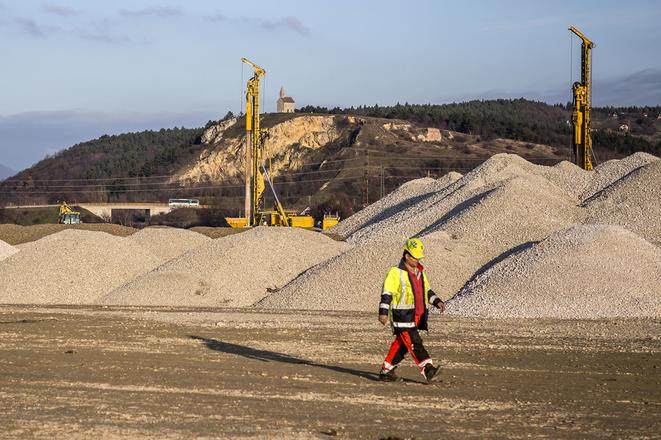A possible re-evaluation of investment plans of the British carmaker Jaguar Land Rover in Slovakia was one of the biggest concerns that emerged in Slovakia immediately after results of the EU referendum in Great Britain were announced. And even though some speculations that the carmaker had put its plans on hold ahead of the referendum, the carmaker confirmed its plans in Slovakia even after Britons voted to leave the EU. Nevertheless, Brexit will have an effect on the car industry in Europe, including Slovakia.
While for now consequences of Brexit for the automotive industry in Europe are not clear, some market watchers indicate that regarding Brexit, it would be an advantage for the British carmaker to have a branch in Slovakia.
“The outcome of the EU referendum has no impact on our plans for a plant in Slovakia,” Lisa Palmer, spokesperson of Jaguar Land Rover Corporate, told The Slovak Spectator, on June 27.
JLR plans in Slovakia
Late last year JLR picked Slovakia over the UK, USA, Mexico and Poland as the site for its new €1.5 billion plant. It will be built near Nitra, western Slovakia. Its initial capacity should be 150,000 vehicles when it starts production in 2018.
Adrian Hallmark, strategy director of Jaguar Land Rover (JLR), reiterated on June 29 that the “short-term” effects of Britain’s decision to leave the EU will not affect plans to build a new plant in Slovakia.
“The short-term issue that Brexit presents doesn’t change our overall strategy,” Hallmark told reporters at a news conference in London as cited by Reuters.
Europe is a key strategic market for JLR’s business, comprising 20 percent of global sales. Indian Tata Motors fears a significant loss of almost $1.37 billion in the revenues of its subsidiary Jaguar Land Rover in the event of Britain’s exit from the EU, based on its earlier estimate.
“There will be a significant negotiating period, and we need to understand more about that as details emerge,” Palmer told The Slovak Spectator. “We will work hard with all parties to ensure that the importance of the British automotive industry is fully understood at every level of the negotiation process.”
JLR said that it could not envisage a harsh response such as high tariffs from EU allies on it or Britain’s other high-end carmakers.
“I can’t imagine any overly punitive measure in the premium end of the business that would cut off that market opportunity,” said Hallmark. “It would be cutting the European nose off to spite its face.”
Slovakia’s view
Market watchers in Slovakia said that it will be necessary to wait for results of the negotiations between the EU and the UK, but they are optimistic.
“I assume that JLR will continue in realisation of its investment,” Juraj Sinay, president of the Automobile Industry Association (ZAP) told The Slovak Spectator, adding that he is putting his expectations on the fact that this is an investor, part of whose capital comes from India and its managerial, production and cooperation are inter-linked also with other EU member countries, for example Germany. “It is active on all world markets and thus Slovakia as the country of origin of their cars may be advantageous.”
Sinay even thinks that Brexit may positively influence its subcontractors’ chains when deciding whether to produce also in Slovakia.
Martin Jesný, analyst with the Slovak Automotive Institute, believes that after Brexit the importance for JLR that produces cars only in UK to have a plant in Slovakia will be even higher.



 The British Jaguar Land Rover (JLR) company comes to Nitra among foreign investments. (source: Sme )
The British Jaguar Land Rover (JLR) company comes to Nitra among foreign investments. (source: Sme )